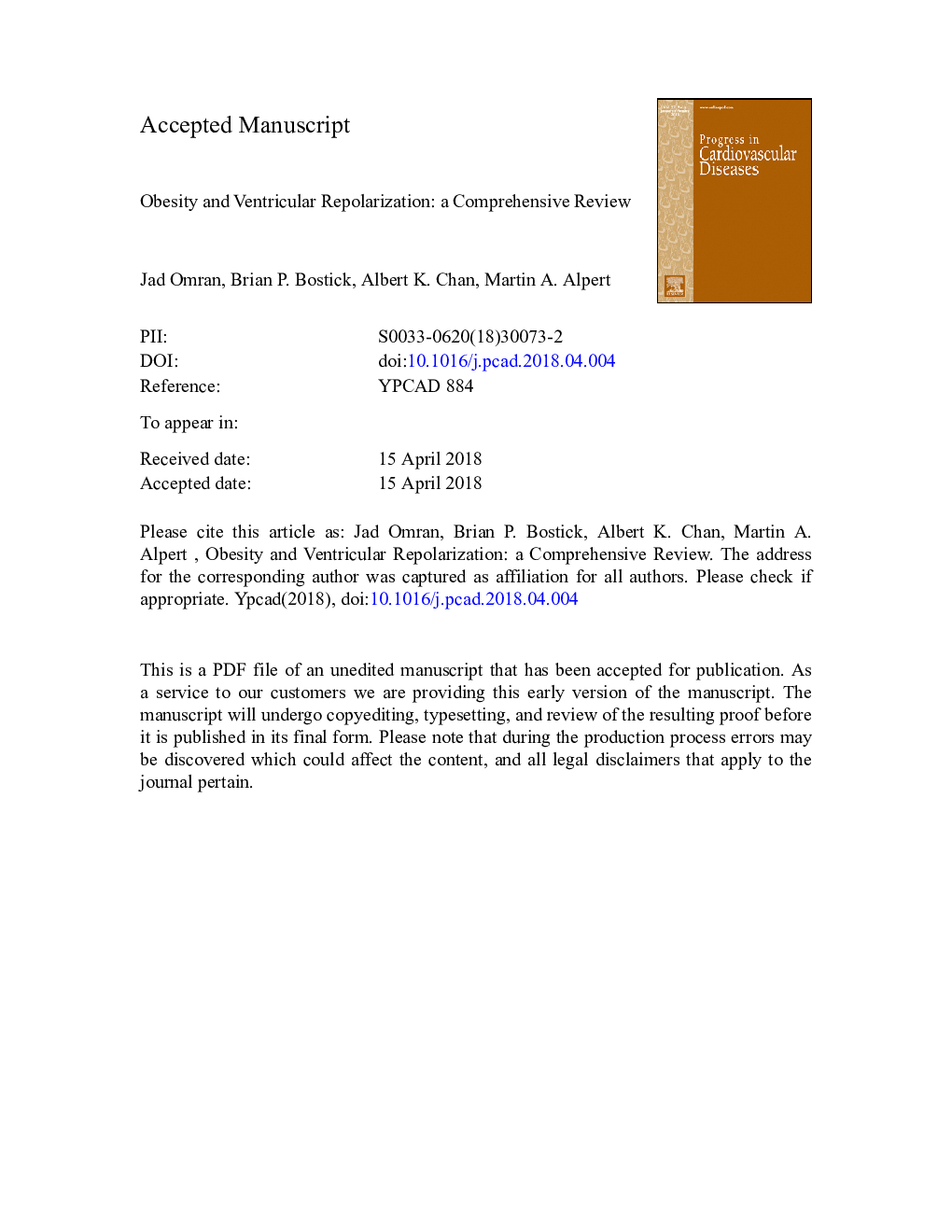| Article ID | Journal | Published Year | Pages | File Type |
|---|---|---|---|---|
| 8963247 | Progress in Cardiovascular Diseases | 2018 | 45 Pages |
Abstract
Obesity is known to be a strong predictor of sudden cardiac death. For this reason, concern exists that this association may be related to delayed ventricular repolarization (VR), which has been extensively studied in overweight and obese patients. The corrected QT interval (QTc) and QT or QTc dispersion have been the most commonly-used electrocardiographic methods for assessing VR. Multiple controlled studies demonstrated that QTc and QT or QTc dispersion were significantly longer/greater in overweight and obese subjects than in normal weight controls. The preponderance of evidence indicates that weight loss in overweight and obese patients, whether achieved by diet or bariatric surgery, significantly shortens QTc and decreases QT or QTc dispersion. Several co-morbidities that are commonly associated with obesity may delay VR. These include diabetes mellitus, the metabolic syndrome, systemic hypertension, left ventricular hypertrophy, heart failure, and obstructive sleep apnea. It is unclear whether overweight and obesity are independent predictors of delayed VR. It is also uncertain whether prolongation of QTc in such patients is sufficient to predispose to potentially fatal ventricular arrhythmias.
Keywords
CHDT2DMLVHWHRCRFHTNQTcSCDVentricular repolarizationCardiorespiratory fitnessMyocardial infarctionobstructive sleep apneaOverweightElectrocardiographyECGOsaLeft ventricularcoronary heart diseasecardiovascular diseaseWaist circumferenceType 2 diabetes mellitusCVDMetabolic syndromebody mass indexBMIHypertensionBlood pressurePhysical activitycardiovascularMETSObesitySudden cardiac deathheart failureLeft ventricular hypertrophyWeight losswaist-hip ratio
Related Topics
Health Sciences
Medicine and Dentistry
Cardiology and Cardiovascular Medicine
Authors
Jad Omran, Brian P. Bostick, Albert K. Chan, Martin A. Alpert,
